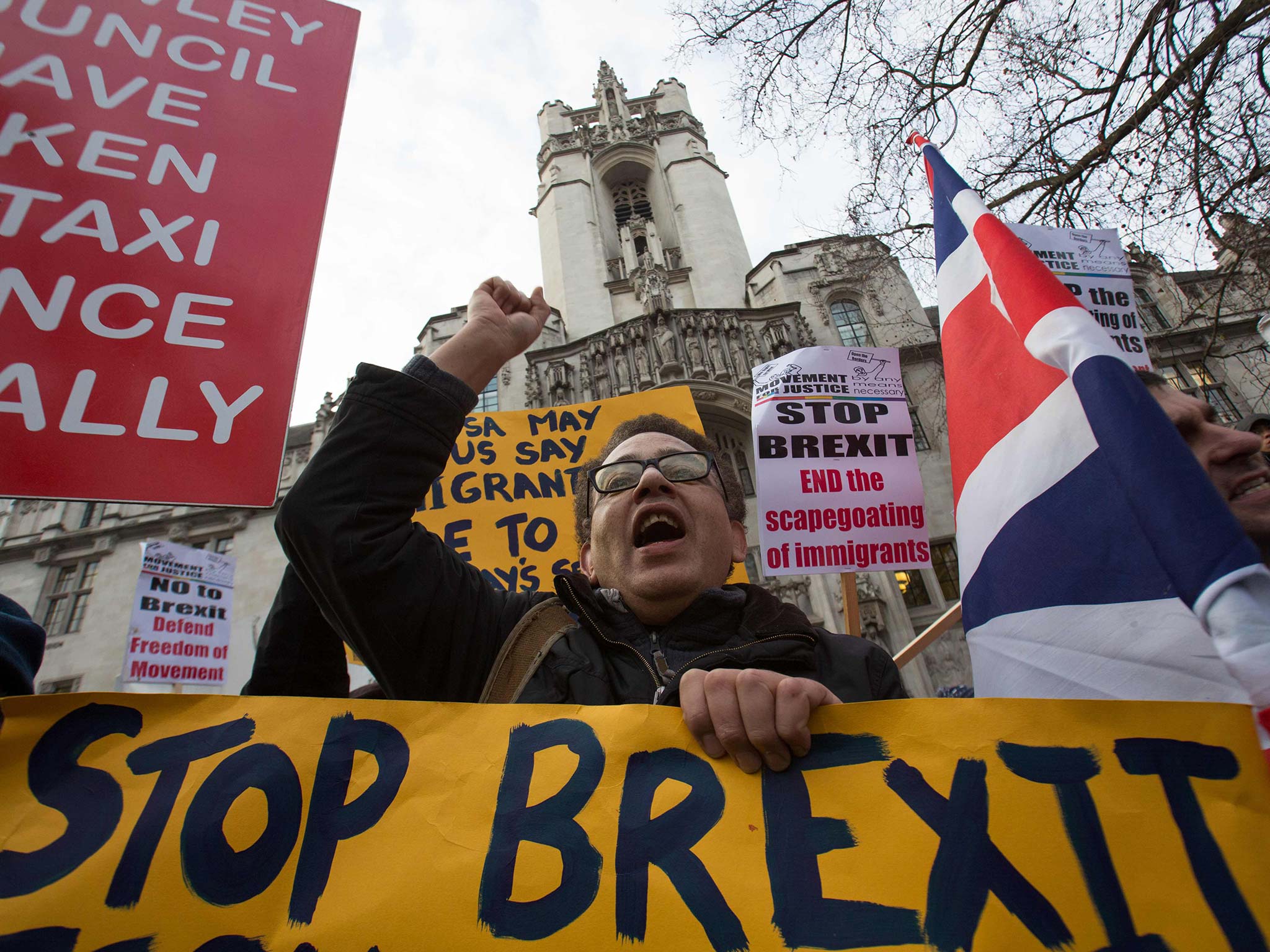Brexit will leave us down and out in London, but not Paris
Please send your letters to letters@independent.co.uk

Your support helps us to tell the story
From reproductive rights to climate change to Big Tech, The Independent is on the ground when the story is developing. Whether it's investigating the financials of Elon Musk's pro-Trump PAC or producing our latest documentary, 'The A Word', which shines a light on the American women fighting for reproductive rights, we know how important it is to parse out the facts from the messaging.
At such a critical moment in US history, we need reporters on the ground. Your donation allows us to keep sending journalists to speak to both sides of the story.
The Independent is trusted by Americans across the entire political spectrum. And unlike many other quality news outlets, we choose not to lock Americans out of our reporting and analysis with paywalls. We believe quality journalism should be available to everyone, paid for by those who can afford it.
Your support makes all the difference.For those who “wanted their country back” through Brexit, the fact that a number of major banks are in advance stages of planning to shift some operations from London to Paris should act as a rather alarming wake-up call.
Similar talks are of course going on in Europe's other financial centres, and authorities in Frankfurt, Luxembourg and Amsterdam have said they would welcome banks moving operations from London for when the UK leaves the European Union.
For many years, British-based financial services companies have been able to operate throughout Europe using so-called passporting rights. That scheme may end when Britain leaves the EU, with no guarantee that it will be replaced by a similar agreement.
It is that uncertainty that has led many financial companies – particularly international banks – to make contingency plans that would see them transfer a chunk of their business to an EU member country.
Eight centres are now actively vying for this business: Paris, Frankfurt, Dublin, Luxembourg, Amsterdam, Madrid, Bratislava and the Maltese capital, Valletta. The fact that major banks have gone as far as conducting due diligence indicates an important milestone.
With its strong reliance on the financial services sector, Edinburgh is likely to be hard hit by such a move. Of course, there is an alternative, given the fact that Scotland voted overwhelmingly to remain in the EU, and that is that we protect and indeed greatly expand our financial services sector through securing our own deal with the EU, ensuring membership of the much-coveted single market.
Alex Orr
Edinburgh
No one group is to blame
After the scandals of child abuse and exploitation in various denominations of the church, BBC and professional football comes the news that more than 300 police officers have been accused of using their authority to sexually abuse members of the public – including victims of crime.
Is there one facet of the British establishment that isn’t implicated in sexual abuse? Whatever else, these latest revelations should end, once and for all, the racist argument that sexual abuse is the exclusive practice of one specific ethnic group, culture or religion in British society.
Sasha Simic
London
Time to derail Chris Grayling’s plans
I have come to the conclusion that Chris Grayling seemingly believes that the transport secretary position is merely a sinecure? Despite the disgraceful shambles on Southern rail, he refuses to get involved. Who does he think should intervene – the Health Secretary?
Now he is reportedly blocking a cross-party initiative to allow Transport for London to run suburban services into London. This decision is appears to an attempt to thwart a Labour London mayor. Virtually everybody would have more faith in TfL to run a competent rail service for long-suffering fare-paying passengers than the franchisees.
Robert Boston
Kent
In response to your article by Ben Chu (Southern Rail is a disaster because we never gave our railways a reason to provide good customer service, 7 December), I feel that the changes are worthwhile. I have experienced too many cancelled trains when the conductor was delayed – and watching too many an empty train roll out the station.
This isn't about safety – half the trains running are already driver-only operated. It isn't about jobs – Southern have provided enough guarantees that there are no redundancies while they operate the franchise. It's about the RMT trying to cling to power as these changes are rolled out across the other networks.
Change happens, and the RMT has yet to move with it.
Name supplied
Brighton
I've just read Simon Calder's manifesto for improving our rail service (Simon Calder: My five-point plan to fix the railways, 7 December).
But you can bet that none of these ideas will be put into practice, or even considered, by the people who are currently in positions to do so. Why is this so? Because the “people in power” are so insecure that they cannot take on these ideas that often criticise or go against their own “solutions”, which they have often had to cobble together too quickly or with too little experience. Sadly, I believe that our civil service hampers this decision-making because of its own lack of current, up-to-date know-how and experience.
They should start at the base of the problem: ask people who are directly involved; look elsewhere to see what other people, countries and organisations are doing; explore and use the latest technology; and don't be restricted by your pride and insularity and fear of being wrong.
Peter Cole
Northumberland
Join our commenting forum
Join thought-provoking conversations, follow other Independent readers and see their replies
Comments